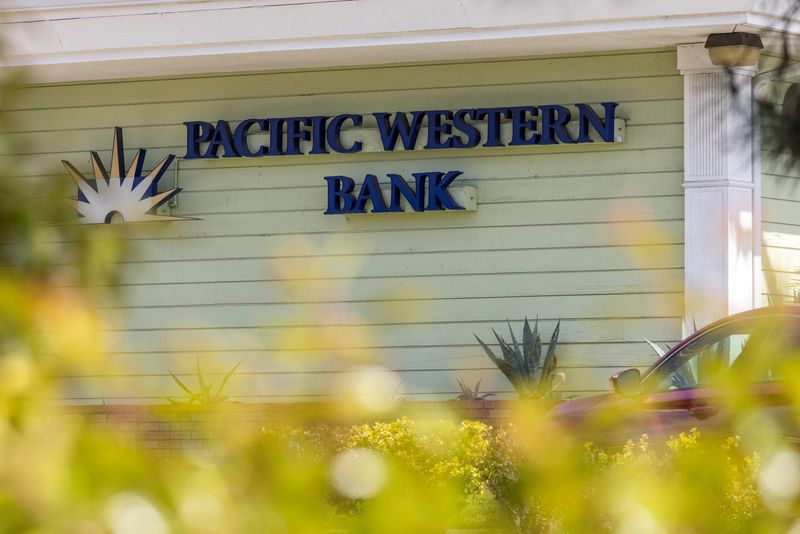(Reuters) -Shares of U.S. regional lender PacWest Bancorp fell nearly 2% on Wednesday, as investor optimism over its property lending unit sale and the divestment of real estate loans became overshadowed by the debt ceiling impasse.
A deal to raise the U.S. debt limit remained elusive, weighing on investor sentiment, as negotiations between Democrats led by President Joe Biden and Republicans from Congress, headed by House Speaker Kevin McCarthy, reconvened at the White House on Wednesday.
"The standoff is weighing on global stocks as investors seek haven assets. Our base case is that an agreement will be reached in the eleventh hour," Arthur Hogan, chief market strategist at B.Riley Wealth, wrote in a note to investors.
PacWest shares were trading down at $7.28, in line with the broader market and other regional banking stocks. Western Alliance (NYSE:WAL) Bancorp lost 2.3%, Comerica (NYSE:CMA) Inc fell 2%, and Valley National Bancorp (NASDAQ:VLY) . The KBW Regional Banking Index slipped 1.8%.
PacWest on Tuesday agreed to offload its property lending unit for an undisclosed amount to real estate financing firm Roc360, a day after the sale of $2.6 billion worth of real estate construction loans at a discount.
The exposure of regional lenders to commercial real estate, particularly office buildings, has remained a concern among investors as borrowers struggle to make payments in a higher interest rate environment while asset prices have slumped.
PacWest's stock is down about 70% this year but has nearly tripled in value from lows, in tandem with other regional lenders, on growing confidence that the banking crisis was almost over and many lenders are fundamentally sound.

This rebound has hit many short-sellers, who have lost a combined $98.5 million betting against shares of PacWest, Western Alliance Bancorp, Fifth Third Bancorp (NASDAQ:FITB) and Comerica, according to data from analytics firm Ortex.
Meanwhile, Citigroup Inc (NYSE:C) shares fell nearly 2% on Wednesday after the bank announced that it had scrapped a $7-billion sale of its Mexican consumer unit and would rather list it instead.